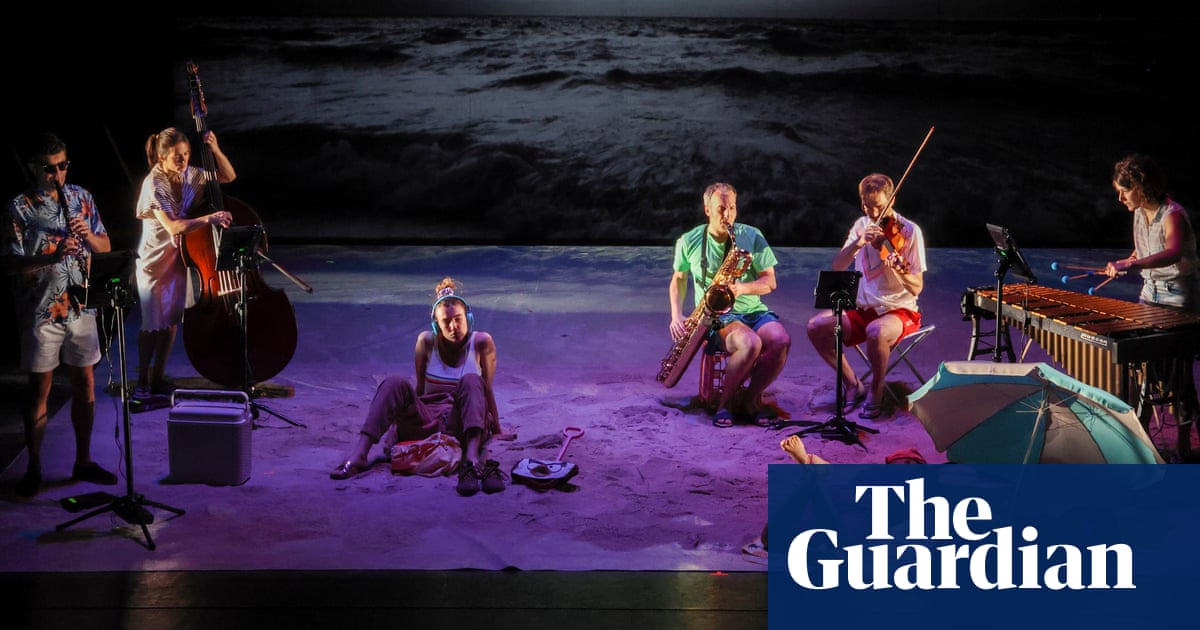
On 8 March 2014, Malaysia Airlines flight MH370 took off from Kuala Lumpur airport. Somewhere over the Indian Ocean the plane, carrying 227 passengers and 12 crew, vanished from air traffic radar.
Though the subsequent search was the biggest in aviation history, the mystery of what happened to the passengers and crew has never been solved. The families have been left in a state of uncertainty, their questions unanswered.
All Right. Good Night. – initially reported to be the final message from the pilot of the missing jet – is a show by Helgard Haug of German theatre innovators Rimini Protokoll. It weaves together the story of the disappearance of flight MH370 and the stasis in which it left the families, with a personal account of her father’s gradual decline from dementia and the way someone can vanish from our lives even while remaining physically present.
The show, which premiered in Germany in 2021 (where it was awarded best show of the year by German theatre critics), knits together projected text with a score composed by German musician Barbara Morgenstern, performed live by the Zafraan Ensemble. It is neither a concert nor a performance, but “something in between,” says Haug. “The text has a very clear, insistent rhythm that we tied together with the music,” she says. The musicians perform behind a transparent curtain and images of waves are projected on the back wall. Morgenstern, who previously collaborated on the Rimini Protokoll show Chinchilla Arsehole, Eyey, a piece about Tourette syndrome, is predominantly an electro-pop musician so she faced the challenge of working with a chamber orchestra.
Haug’s text captures moments of lucidity and distress, hope and hopelessness. Both of the show’s scenarios, she says, are in some senses anti-dramatic. “We know the end of both stories from the start,” she says. The piece is more about “the attempts to adjust to a situation”.
The musicians play surrounded by sand, as if on a beach. It is at once soothing and ominous. “People always long to go to the sea, but it can be frightening,” she says – this vast, potentially deadly expanse of water. “Every scene has a new kind of setting,” Haug explains, but as soon as the setting is established, nothing else happens. “It’s more like a tableau.”
Haug had become increasingly interested in the idea of absence. She conducted research into missing people. “I went down a lot of rabbit holes,” she says. Gradually she focused on the story of MH370 and on her father, and everything else fell away. These two narratives interweave in poignant ways. Talk of drift analysis merges with descriptions of her father’s handwriting, which grows jagged on the page. His conversation turns in circles just as the plane is thought to have circled over the ocean. “You are gone, but also still here,” the text says. There are, however, moments of humour too, something that was true to Haug’s experience with her father.
The show started with “an enormous pile of text”, she says, but then, gradually, they whittled it down and “the music took over”. There’s something fitting in this. Often with people with dementia, when memories fade away, music remains. “Memories are often triggered by music,” she explains. “People may not know their name any more, but they can sing along to a song they remember from their childhood.”
Haug was very conscious of the fact that, for the families of the passengers, their grief isongoing; they have no closure. She did not want to expose them. The use of unspoken text is, in some senses, protective. The audience reads it in their own voice. They hear it in their heads. Haug also had to ask herself and her family whether they were comfortable sharing her father’s experience on stage in this way. He was a public figure, she reasons, an intellectual, and in his later years, he spent a lot of time thinking about what would make the perfect flat for someone living with dementia. “He was very aware that it might happen to him,” she said. “The older you get, the higher the risk that you will suffer from this.” Perhaps, she suggests, he even had some sense this was happening to him, before anyone else noticed. “He had very clear opinions about how he wanted people to deal with him when he grew confused and was no longer able to speak for himself,” she says.
In the end, she realised, “I felt that I could do this, and maybe I should do this”. After all, the statistical likelihood of experiencing dementia within our families is high, even if it is something people don’t often want to acknowledge or discuss. The show is a way of placing these issues “on the table”, says Haug, and though it is personal to her, “it has resonated with a lot of people”.
All Right. Good Night. is at Home, Manchester, 6-8 July, as part
of Manchester international festival












